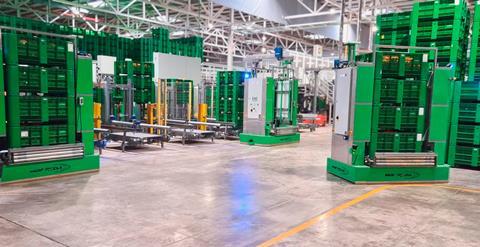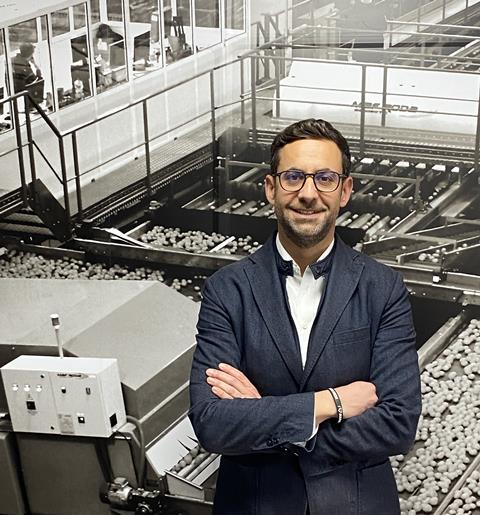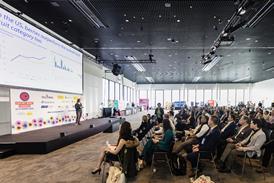The rising cost and scarcity of labour is driving the move toward increased automation in fresh produce, according to Didier Izard, export director at French grading and sorting specialist Maf Roda
Do you have any new projects or installations to highlight?
Didier Izard: We have key projects all around the world for all types of products, including citrus, apples, cherries, blueberries, tomatoes, kiwifruit, avocados and mangoes. We currently cover all the main exporting countries globally thanks to our 16 subsidiaries and more than 50 international partners.
In terms of blueberry projects, right now we are continuing our development with installations in Peru, where we are leaders on the market, and completing a big project in Mexico and our first installation in Morocco. Soon we will also install our first blueberry packing line (for clamshell punnets) in Kazakhstan.
What are the latest developments when it comes to your machines?
DI: Our objective is to offer a global solution to automate all the processes that occur in a fresh fruit and vegetables warehouse. We have six main areas of development: mechanical engineering, automation, traceability, electricity, electronics and robotics.
In recent years we have made significant developments in many of these areas. For example, in quality analysis we are implementing AI in our systems and multispectral cameras. In automation, we have officially launched our automated guided vehicles (AGVs), designed specifically for fruit and vegetable warehouses to improve the efficiency of internal logistics. And in robotics, we have developed automatic packing systems such as Fast Pack for apples, peaches and nectarines.
All these solutions are aligned with our objective of offering a global solution that supports our clients in automating processes, reducing costs and improving efficiency. Our customers are able to process more fruit in less time and reduce labour costs, giving them more flexibility.

Are you seeing increased demand for machines that sort particular products?
DI: There are certain products that were traditionally more manual that are now being handled with more investments in automation. Blueberries are a clear example. Citrus and apples are also two main focuses. But automation in general is the trend.
Are there any difficult products in terms of shape or size that you’re close to having solutions for?
DI: Our objective is to cover all types of products, even those that present more difficulties. We are always working on and thinking of solutions. One solution we launched last year is the Cherryway IV, which solves a difficult problem, with one single sizer and electronic system that can process all types of sweet cherries, as well as different shapes of cherry tomatoes thanks to the four rotations patented by Maf Roda. We have also developed electronic grading solutions for products like dates, elongated pears, walnuts, potatoes, onions, artichokes, broccoli and Brussels sprouts.
What are the biggest challenges for the company at the moment?
DI: I think the biggest challenge right now, and not only in this sector, is the instability caused by the Russia-Ukraine war and the consequences of two years of a global pandemic. Both events have increased the cost of energy and the cost and scarcity of raw materials. As a result, there are some investments, especially in certain regions, that have been put on hold. For example, in the European market we are following with special attention what happens with the possible recession in the UK and Germany.

How are you affected by rising costs?
DI: The increase in costs of energy and raw materials is affecting businesses worldwide. In our case, we are trying to manage it in the best possible way to limit the effect on our clients. That is what really matters to us: our clients’ satisfaction.
With labour availability and costs a major problem right now, are you confident of continuing demand for your solutions?
DI: The pandemic and scarcity of labour have sped up our client’s necessity to automate processes. The need was already there, but let’s say it has accelerated the transformation. In the same way it has accelerated the digitalisation of the global market. Our purpose as a company is to offer global solutions to meet and even anticipate those demands.
Climate change is also a growing issue for producers. But do more frequent extreme weather events actually make your machines even more essential for exporters?
DI: Some of our solutions certainly help our clients to manage their final product and processes more efficiently. One example is our water filtration systems that improve the management of water used along the installation, reducing the amount of water needed and using it more efficiently. In addition, one of our core products, our quality systems, analyse the product externally and internally, enabling our customers to maintain a homogenous fruit quality and adding precision in the fruit’s classification.






